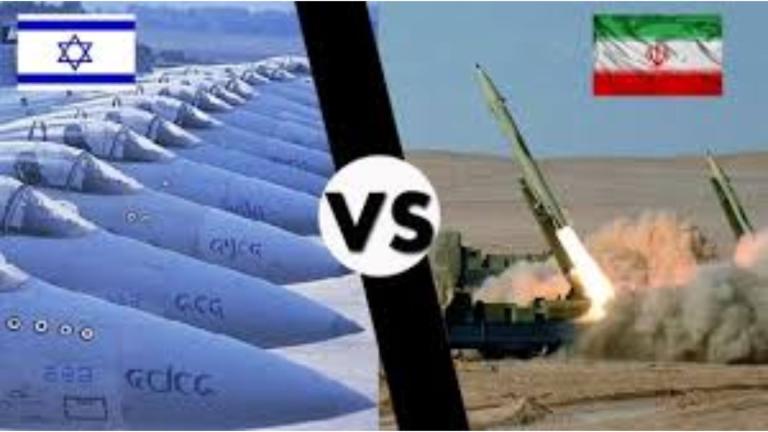
Courtesy of the Begin-Sadat Ceneter
We need to push the envelope. So here goes.
Amidst the noise of global conflicts and geopolitical strife, one resounding question reverberates: Where does our allegiance truly lie as Christians?
Many Christians proclaim a love for Israel as God’s chosen people. I wonder if we have conflated the love for a people with the love for a nation. I’ll come back to this point in my next post.
Yet, amidst the tumult of Gaza and Israel, and now Iran and Israel, a troubling trend emerges—one of Israel-centrism that often eclipses the cries of other suffering souls.
Are we not called to extend that same passion for peace and justice to everyone?
Should our advocacy for one nation come at the cost of neglecting the plight of others? These questions pierce the heart of our faith and demand reflection. For if Christianity knows no borders, then neither should our pursuit of peace and justice.
In an effort to justify our lack of love for others, as if that were an option, it seems that many have bought into the civil discourse that regularly demonizes the other.
NB: Another one of the unwritten rules, which I alluded to in my last post, requires me to affirm the condemnation of Hamas and that I am critical of the aims and ambitions of Iran.
But this raises the question: are we justified in demonizing a whole country full of people and an entire religious group (Muslims)?
My concern is that when we condemn Hamas or Iran, we too quickly associate all Muslims with radical Islam.
NB: I know that some may find it hard to accept any notion that we should accept, love, or tolerate Muslims. But this is what is means to love our neighbor.
The Mission of God’s People
I would assert that our mission is to make Christ known to the nations.
This begins with every Christian, individually and collectively, growing in the likeness and image of Christ (Col 1:28-29). It is through growing in the likeness of Christ that we fulfill our mission of being the Image of God to the world.
The mission to make Christ known means that we must reflect who He is. Many Western Christians have the overly simplistic notion that making Christ known means telling others about Jesus.
Jesus, however, affirmed, “By this all men will know that you are My disciples if you have love for one another” (John 13:35). In other words, it is through loving others that we reflect who God is—of course, this love begins with those within the covenant community, but it must extend to all as well.
When we sacrificially surrender for the sake of others (which is the hallmark of Christian love), we tell the world, “This is what our God looks like.” Our actions and attitudes reflect God to the world far more than our words.
A radical, cross-bearing, sacrificial love for the other is to extend to our enemies. After all, a radical, cross-bearing, sacrificial love for the other is what our God looks like. This is what the famed John 3:16 means when it says, “For God so loved the world. . . . .”
This love for the world includes His love for us. But Christ loved us while we were His enemies: “But God demonstrates His own love toward us, in that while we were yet sinners, Christ died for us” (Rom 5:8).
It is this sort of love for our enemies that Jesus calls all Christians to in the Sermon on the Mount:
“But I say to you, love your enemies and pray for those who persecute you, so that you may be sons of your Father who is in heaven; for He causes His sun to rise on the evil and the good, and sends rain on the righteous and the unrighteous” (Matt 5:44-45).
The implication is clear: when we love our enemies, we act like children of the Father. Why is that? Because God loves His enemies: He even “causes His sun to rise on the evil and the good, and sends rain on the righteous and the unrighteous” (Matt 5:45).
This brings me to my next point.
Tucker Carslon’s interview with Munther Isaac: the Good and the Bad
Tucker Carlson has apparently gone independent. As part of his new gig, he procured an interview with Munther Isaac, the Pastor of the Christmas Lutheran Church in Bethlehem and a good friend of many of us.
Many of those who, like myself, have been working to bring a just-peace to the Israeli-Palestinian conflict were ecstatic at Carlson’s interview. I myself, however, though surprised at Carlson’s sympathetic interview with Munther, have a lot of apprehensions.
In the interview, Carlson expressed outrage that his tax dollars were being used by the US to provide Israel with weapons, that Israel then uses said weapons on Gaza, and that some of the Gazans who are killed or injured by said weapons are Christians.
This sounds all well and good. Someone from the far right is actually speaking up for the Palestinians.
Well, not so fast.
My concern is that Carlson made his point very clearly. It was the bombing of Christians in Gaza that caused him alarm. But what does Carlson think of his government arming a foreign nation to kill thousands of non-Christians? This apparently would be fine.
It is as though Carlson was not concerned with the suffering of Muslims in Gaza.
NB: You might object by contending that Carlson didn’t address the suffering of Muslims in Gaza so we have no way to know his sentiments on this matter. Fair enough. I do believe that any non-Christian in Gaza would have been at pains to listen to the interview and wonder the entire time, “What about us?”
Weep with those who weep
As Christians, we are called to weep with those who weep (Rom 12:15) regardless of who they are.
During the interview with Carlson, Pastor Isaac was understandably sympathetic to Carlson’s take on the matter—well, at least from what we can see from the interview! (We must remember that the media edits such interviews according to their desires. Munther may have expressed dissent and we were not made privy to it). Of course, as a Palestinian Christian pastor, one of Munther’s primary responsibilities is to care for the well-being of the Christian community in Bethlehem; and, as a leading Christian voice in the community, for all Palestinian people.
Knowing Munther, I suspected that he was equally concerned about the Muslims in his community. So I asked him about Tucker’s lack of concern for Muslims and he affirmed in an email that the entry point for the interview was Christians. He added, “I knew that the focus was on Palestinian Christians.” He also noted that at first, he thought the interview was a trap but in the end, he was pleased that a Western, far-right, media personality was taking up the cause of Palestinian Christians—even if Carlson was not taking up the cause of all Palestinians.
We in the West, however, are not in Munther’s situation. Consequently, we should exhort Carlson to take up the cause of all persons. Sure, we are pleased that a Western, right-wing, media personality showed concern for the Palestinian Christians.
There is not an option to love one (person, nation, religious group, etc) and not the other.
Israel and Iran
While there is much to unpack regarding the recent events between Israel and Iran, I’ve reached the limit of what I’ll delve into for this post. Instead, consider this a precursor to what lies ahead. In my next post, I aim to shine a light on the Western tendency to gloss over Israel’s actions while vilifying Iran’s, often reducing them to the deeds of a purportedly radical Islamic state.
NB: My next post will be released on Wed of this week (Apr 24, 2024).
NBB: For those who are curious as to whether Iran’s attack on Israel is a sign of the final battle with Gog of the land of Magog from Ezek 38-39 and Rev 20, OT scholar Jace Broadhurst and I spent over an hour on a Determinetruth Livestream discussing this topic.
. . . to be continued
Our goal is to keep these posts free of charge. I do not intend to ever hide them behind a paywall. I can only do this if those of you who have been blessed by them and can afford to give ($5, $10, $25, or more/month) do so. You can give a tax-deductible contribution by following this link.
Please share this post and let others know about Determinetruth.
If you wish to view this blog on your smartphone through the Determinetruth app simply download the “tithe.ly church” app on your smartphone and insert “determinetruth” as the church name you wish to follow. Once it is loaded, simply click on the “blog” icon and it will automatically load.
If you would like to have Rob speak at your church or organization in person or via Zoom, please let us know by filling out the contact info on the Contact me tab on this site.














